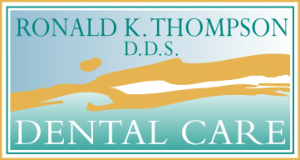Have you heard of Cerec & Procera Crowns for Restorative Dentistry? At East Valley Dental Care, we offer this advanced technology to restore your teeth and help you achieve a beautiful and healthy smile.
Benefits of Cerec & Procera Crowns for Restorative Dentistry
Cerec & Procera crowns are a popular choice for restorative dentistry because of their durability and aesthetic appeal. These crowns are constructed from high-quality materials such as porcelain, zirconia, and e.max, making them strong and long-lasting. Additionally, these crowns have a natural-looking appearance, which allows them to blend in with the existing teeth. This makes them an ideal option for restoring the shape and function of a damaged or decayed tooth.
The process of placing a Cerec & Procera crown is relatively quick and minimally invasive. The crown is designed and created using advanced CAD/CAM technology, which eliminates the need for a traditional dental impression. This greatly reduces the amount of time needed to complete the procedure. Furthermore, the crown is custom-made to fit the individual’s tooth, which ensures a secure and comfortable fit. For more information on Cerec & Procera crowns, please refer to our Cerec & Procera Crowns: A Comprehensive Guide for Patients.
Types of Materials Used for Cerec & Procera Crowns
Cerec & Procera crowns provide a durable and aesthetically pleasing solution for restorative dentistry. The materials used to create these crowns can vary depending on the patient’s needs and the type of restoration. Ceramic, porcelain, and zirconium are the most common materials used in Cerec & Procera crowns.
Ceramic crowns are the most popular choice for restorations due to their natural color and ability to be customized to match the patient’s existing teeth. Porcelain crowns are also popular because they are strong and stain resistant. Zirconium crowns are the strongest and most durable option, but they are also the most expensive. At Mesa Dental, we offer all three types of materials for Cerec & Procera crowns so that our patients can get the perfect restoration for their needs. Mesa & Cerec & Procera Crowns
Preparation & Placement Techniques for Cerec & Procera Crowns
When preparing a tooth for a Cerec or Procera crown, it is important to remove the decay or damaged areas of the tooth, as well as any existing restorations. After this, the dentist will then shape the tooth to make room for the crown and take an impression of the prepared tooth. This impression is then used to create a custom-made crown using either the Cerec or Procera method. When the crown is finished, it is then placed on the prepared tooth and cemented in place. The dentist may also use a special bonding agent to ensure a secure fit.
Advantages of Using Digital Technology for Cerec & Procera Crowns
Digital technology used for Cerec & Procera crowns offers a number of advantages for restorative dentistry. It allows for more precise measurements and greater accuracy in crown placement, while also reducing the amount of time needed for the procedure. Digital technology can also make it easier to customize the crowns to match the patient’s existing teeth, providing a more aesthetically pleasing result. Furthermore, digital technology can help reduce the amount of waste generated by traditional crown procedures, making it a more eco-friendly option.
Maintenance & Care for Cerec & Procera Crowns
Cerec and Procera crowns are both strong and durable restorative dentistry options that require little maintenance and care. To keep your crowns in good condition, it is important to brush and floss regularly, as well as visit your dentist for regular checkups to ensure your crowns are in good shape. Additionally, avoiding hard or sticky foods can help maintain your crowns and prevent them from becoming loose or damaged.
Conclusion
For more information about Cerec and Procera crowns, please contact East Valley Dental Care at 360-800-2013 or read our reviews here.





